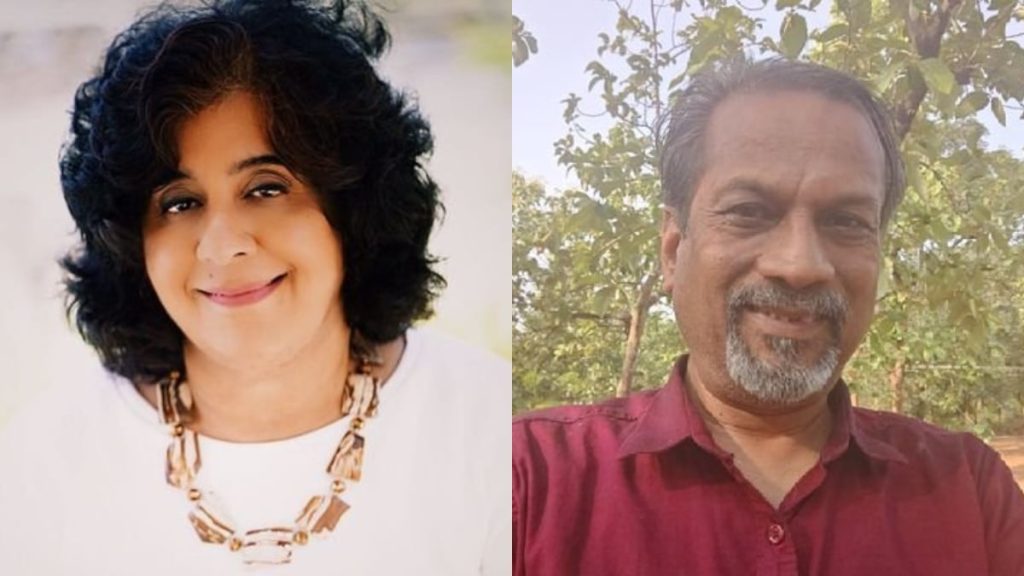Listen to the article
Zoho CEO’s Anti-HPV Vaccine Comments Spark Fierce Backlash from Health Experts
Zoho CEO Sridhar Vembu has ignited controversy across social media platforms with his recent comments questioning the safety and necessity of administering HPV vaccines to young girls in India. His statements have drawn sharp criticism from numerous professionals, including prominent author and investor Devina Mehra, who publicly challenged Vembu’s medical qualifications and urged him to cease spreading what she termed “nonsensical propaganda.”
The controversy erupted after Vembu shared a news report about 30-35 female students in Bihar who reportedly fainted following HPV vaccination. The tech executive used this incident to question the broader national vaccination program, arguing that since HPV is transmitted through sexual contact, vaccinating children “doesn’t make much sense.”
Mehra responded forcefully on X (formerly Twitter), writing: “According to this man, a few girls fainting is a worse outcome than 75,000+ Indian women dying every year from cervical cancer.” She emphasized that cervical cancer death rates are particularly high in rural India, making preventative measures even more critical in these communities.
“The last thing we need is this kind of nonsensical propaganda from people who have zero medical knowledge,” Mehra continued, suggesting that “tech bros are not experts on everything from history to medical science.” She further implied that Vembu’s “everyday anti-vaccine tirade appears to be motivated by some ulterior motive.”
Vembu defended his position by acknowledging the political sensitivity of vaccine discussions. “I do not blame the politicians because when someone like me can be shouted down so vocally, it would be political suicide for a politician (of any party) to talk about, particularly when the mainstream consensus is so strongly in favour of ever more vaccine shots,” he wrote.
The Zoho founder revealed that associates had cautioned him against expressing these views publicly, warning of potential damage to his business and reputation. Nevertheless, he maintained his stance, stating: “I will state what I believe again: we are giving way too many vaccines to young children. This does NOT mean we should stop ALL vaccines.”
India has been working to expand its HPV vaccination program as part of efforts to reduce cervical cancer rates. According to medical statistics, cervical cancer ranks as the second most common cancer among women in India, with approximately 75,000 deaths annually. The World Health Organization and numerous health authorities globally have endorsed HPV vaccination as a critical preventative measure against cervical and several other types of cancer.
The U.S. Centers for Disease Control and Prevention (CDC) recommends HPV vaccination starting as early as age nine, with the ideal window being between 11-12 years. Health experts emphasize that administering the vaccine before potential exposure to the virus—which occurs primarily through sexual contact—provides optimal protection, explaining the rationale for vaccinating pre-adolescents.
This controversy highlights the growing tension between public health initiatives and vaccine skepticism in India, a country still recovering from various misinformation campaigns during the COVID-19 pandemic. Public health experts have repeatedly stressed the importance of relying on medical consensus and peer-reviewed research rather than anecdotal incidents when evaluating vaccine safety and efficacy.
As the debate continues, medical professionals warn that undermining confidence in proven preventative measures like the HPV vaccine could have serious long-term consequences for public health, potentially reversing hard-won progress against preventable diseases like cervical cancer.
Fact Checker
Verify the accuracy of this article using The Disinformation Commission analysis and real-time sources.




8 Comments
As a business leader, Vembu should be cautious about making unqualified medical claims that could undermine important public health programs. Mehra is right to challenge his stance, but the debate would benefit from a calm, fact-based discussion of the pros and cons.
Reasonable people can disagree on the HPV vaccine issue, but Vembu’s comments appear to go against scientific consensus. Mehra’s forceful response highlights the high stakes involved, as cervical cancer devastates many Indian women’s lives. A nuanced approach is needed.
Vembu’s comments seem to downplay the serious public health risks of not vaccinating against HPV. Mehra makes a fair point that preventing cervical cancer deaths should be the priority, even if rare side effects occur. This requires weighing the evidence objectively.
This debate touches on complex tradeoffs between individual liberty, public health, and corporate responsibility. Both Vembu and Mehra make valid points, but the discussion would be better served by a measured, evidence-based dialogue rather than inflammatory rhetoric.
As a business leader, Vembu should exercise caution when making unqualified medical claims that could undermine important public health initiatives. Mehra’s forceful response is understandable given the high stakes, but a measured, evidence-based discussion would be more productive.
While vaccine safety is critical, Vembu’s blanket dismissal of the HPV vaccine program seems unjustified. Mehra rightly points to the high cervical cancer mortality in India, which the vaccine aims to address. A balanced assessment of risks and benefits is warranted here.
This is a controversial topic that deserves nuanced discussion. While vaccine safety is important, dismissing HPV vaccines entirely seems ill-advised given the high cervical cancer rates in India. Both sides should approach this carefully and avoid inflammatory rhetoric.
This is a complex issue where reasonable people can disagree. Vembu raises legitimate concerns about vaccine side effects, but Mehra highlights the serious public health consequences of not vaccinating. Constructive debate, not rhetorical attacks, is needed to resolve this.